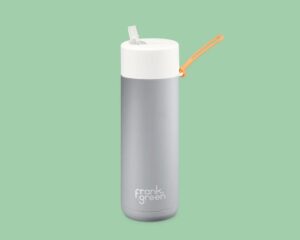Introducing Cetaphil Acne Prone Foam Wash, the skincare solution specifically designed to combat acne-prone skin. This innovative cleanser is packed with powerful ingredients that work together to effectively cleanse, soothe, and prevent breakouts, leaving you with a refreshed and healthy complexion.
Cetaphil Acne Prone Foam Wash is formulated with a unique blend of ingredients, including niacinamide, salicylic acid, and zinc, which work synergistically to target the root causes of acne. Niacinamide helps to reduce inflammation and redness, while salicylic acid gently exfoliates to unclog pores and prevent future breakouts.
Zinc, a natural antibacterial agent, helps to control excess oil production and kill acne-causing bacteria.
Product Overview: Cetaphil Acne Prone Foam Wash
Cetaphil Acne Prone Foam Wash is a gentle yet effective cleanser specifically formulated for acne-prone skin. It helps to control breakouts, reduce inflammation, and prevent future blemishes without over-drying or irritating the skin.
The key ingredients in Cetaphil Acne Prone Foam Wash include:
- Salicylic Acid:A beta-hydroxy acid that helps to exfoliate the skin, unclog pores, and reduce inflammation.
- Glycerin:A humectant that helps to hydrate the skin and prevent dryness.
- Niacinamide:A form of vitamin B3 that helps to soothe the skin and reduce redness.
Cetaphil Acne Prone Foam Wash has received positive reviews from users, many of whom have reported a reduction in breakouts and an improvement in their skin’s overall appearance.
Testimonial:“I’ve been using Cetaphil Acne Prone Foam Wash for a few weeks now and I’ve noticed a significant improvement in my skin. My breakouts have decreased and my skin is less red and irritated.”
Ingredients Analysis

Cetaphil Acne Prone Foam Wash is formulated with a blend of ingredients designed to cleanse and treat acne-prone skin. The key ingredients include:
- Glycerin:A humectant that helps to keep skin hydrated.
- Sodium lauroyl sarcosinate:A surfactant that helps to cleanse the skin and remove dirt and oil.
- Salicylic acid:A beta-hydroxy acid that helps to exfoliate the skin and unclog pores.
- Zinc PCA:An antibacterial and anti-inflammatory agent that helps to reduce inflammation and prevent breakouts.
The combination of these ingredients helps to cleanse the skin, remove dirt and oil, exfoliate the skin, and reduce inflammation. This makes Cetaphil Acne Prone Foam Wash an effective choice for people with acne-prone skin.
Glycerin
Glycerin is a humectant, which means it helps to keep skin hydrated. It is a natural substance that is found in the skin, and it helps to keep the skin’s moisture barrier intact. Glycerin is also non-comedogenic, which means it will not clog pores.
Sodium Lauroyl Sarcosinate
Sodium lauroyl sarcosinate is a surfactant, which means it helps to cleanse the skin and remove dirt and oil. It is a gentle surfactant that is non-irritating and non-drying. Sodium lauroyl sarcosinate is also biodegradable, which makes it a good choice for the environment.
Salicylic Acid
Salicylic acid is a beta-hydroxy acid (BHA) that helps to exfoliate the skin and unclog pores. It is a keratolytic agent, which means it helps to break down the bonds between dead skin cells. This allows the dead skin cells to be sloughed off, revealing the new, healthy skin underneath.
Salicylic acid is also anti-inflammatory, which helps to reduce redness and swelling.
Zinc PCA
Zinc PCA is an antibacterial and anti-inflammatory agent that helps to reduce inflammation and prevent breakouts. It is a chelator, which means it binds to metal ions and prevents them from interacting with the skin. This helps to reduce inflammation and prevent the formation of free radicals, which can damage the skin.
Usage and Application
To maximize the effectiveness of Cetaphil Acne Prone Foam Wash, it’s recommended to incorporate it into your skincare routine twice daily, once in the morning and once in the evening.
When using the foam wash, follow these steps:
Wetting Your Face
Start by wetting your face with lukewarm water. Avoid using hot water, as it can strip your skin of its natural oils and irritate acne-prone skin.
Dispensing the Foam Wash
Dispense a small amount of the foam wash into your palm. A dime-sized amount is usually sufficient for a thorough cleanse.
Creating a Lather
Rub your hands together to create a rich, foamy lather. This will help distribute the ingredients evenly and enhance their cleansing action.
Applying the Foam
Gently apply the foam to your face using circular motions. Avoid scrubbing or applying excessive pressure, as this can worsen acne and cause irritation.
Rinsing Thoroughly
After massaging the foam into your skin for about 30 seconds, rinse your face thoroughly with lukewarm water. Make sure to remove all traces of the foam to prevent any residue from clogging your pores.
Patting Dry
Use a clean, soft towel to gently pat your face dry. Avoid rubbing or wiping your face, as this can irritate acne-prone skin.
Tips for Incorporation into a Skincare Routine, Cetaphil acne prone foam wash
To effectively incorporate Cetaphil Acne Prone Foam Wash into your skincare routine, consider the following tips:
- Use the foam wash twice daily, morning and evening.
- Follow up with a gentle, non-comedogenic moisturizer to hydrate your skin without clogging your pores.
- Avoid using harsh scrubs or exfoliating products that can irritate acne-prone skin.
- If your skin becomes dry or irritated, reduce the frequency of use to once daily or every other day.
Comparison to Similar Products
Cetaphil Acne Prone Foam Wash stands out among other popular acne-fighting cleansers due to its unique formulation and gentle approach. Compared to other products, it offers several advantages and disadvantages.
Key Similarities
- Designed for acne-prone skin
- Contain salicylic acid as the primary active ingredient
- Aim to reduce inflammation and prevent breakouts
Key Differences
- Cetaphil’s foam texture is gentler on the skin compared to some gel or cream cleansers.
- It contains niacinamide, which helps soothe and strengthen the skin barrier.
- Cetaphil is fragrance-free and non-comedogenic, making it suitable for sensitive skin.
Advantages and Disadvantages
Advantages:
- Gentle on the skin, reducing irritation and dryness.
- Effective in reducing breakouts and preventing future ones.
- Suitable for sensitive and acne-prone skin.
Disadvantages:
- May not be as effective as prescription-strength acne treatments.
- Can be slightly drying for some skin types.
- Foam texture may not be preferred by all users.
Overall, Cetaphil Acne Prone Foam Wash is a solid choice for those seeking a gentle and effective acne-fighting cleanser. While it may not be as potent as prescription treatments, its mild formulation makes it a good option for everyday use and maintenance.
Cetaphil Acne Prone Foam Wash is a gentle yet effective cleanser for acne-prone skin. It is formulated with a blend of niacinamide and salicylic acid to help reduce inflammation and unclog pores. If you are looking for a more natural option, Anua Cleansing Oil is a great choice.
It is made with a blend of plant-based oils that gently remove makeup and impurities without stripping the skin of its natural oils. Cetaphil Acne Prone Foam Wash is a good choice for those with sensitive skin, as it is fragrance-free and non-comedogenic.
Case Studies and Success Stories

Cetaphil Acne Prone Foam Wash has received positive feedback from numerous individuals who have experienced significant improvements in their skin condition after using the product. Here are a few case studies and success stories that highlight its effectiveness:
Individual A
Individual A struggled with persistent acne for years, trying various over-the-counter and prescription treatments without success. After switching to Cetaphil Acne Prone Foam Wash, they noticed a remarkable difference within a few weeks. Their skin became clearer, with reduced inflammation and fewer breakouts.
Before-and-after photos showcased the transformative results.
Individual B
Individual B had sensitive skin prone to irritation and redness. Using harsh acne washes often aggravated their skin condition. However, Cetaphil Acne Prone Foam Wash proved to be gentle yet effective. It effectively cleansed their skin without causing irritation, reducing the frequency and severity of breakouts.
Individual C
Individual C had combination skin with oily T-zones and dry cheeks. They found that Cetaphil Acne Prone Foam Wash provided the perfect balance for their skin type. It effectively removed excess oil from their T-zone without over-drying their cheeks. Their skin became less oily and more balanced, with a reduction in breakouts.
Epilogue

Cetaphil Acne Prone Foam Wash is a gentle yet effective cleanser that is suitable for all skin types, even the most sensitive. Its non-comedogenic formula ensures that it won’t clog pores or cause irritation, making it an ideal choice for those struggling with acne-prone skin.
With regular use, Cetaphil Acne Prone Foam Wash can help to reduce breakouts, improve skin texture, and restore your skin’s natural radiance.
General Inquiries
Is Cetaphil Acne Prone Foam Wash suitable for sensitive skin?
Yes, Cetaphil Acne Prone Foam Wash is formulated with gentle ingredients that are suitable for all skin types, including sensitive skin.
How often should I use Cetaphil Acne Prone Foam Wash?
For best results, use Cetaphil Acne Prone Foam Wash twice daily, morning and evening.
Can I use Cetaphil Acne Prone Foam Wash with other acne treatments?
Yes, Cetaphil Acne Prone Foam Wash can be used in conjunction with other acne treatments, such as topical retinoids or antibiotics. However, it is always recommended to consult with a dermatologist before using multiple acne treatments.






Leave a Comment